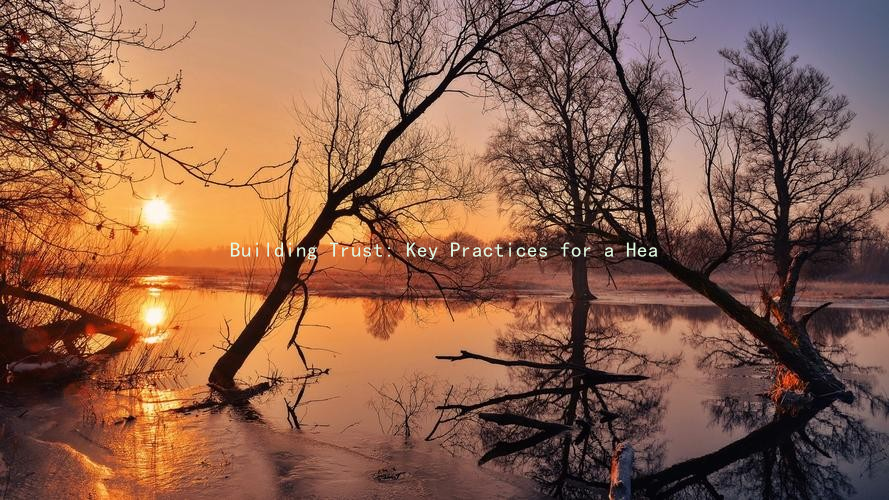Building Trust: Key Practices for a Healthier Relationship
Building trust is foundational to any healthy relationship, especially in the realm of romance and partnership. Trust is not something that is built overnight; it requires ongoing effort, communication, and vulnerability. Here are some key practices that can help establish and maintain trust in your relationship.
First and foremost, open and honest communication is crucial. Being transparent with your feelings, thoughts, and intentions fosters a sense of security. When partners express themselves clearly, it minimizes misunderstandings and creates an environment where both individuals feel safe to share their vulnerabilities. Regular check-ins about each other’s feelings and experiences can strengthen this connection, allowing both partners to feel heard and valued.
Another important aspect of building trust is consistency. Trust can be easily damaged by inconsistency in actions or words. Its essential for partners to follow through on their commitments, whether big or small. If someone says they will be there at a certain time or completes a task, following through builds reliability. On the flip side, breaking promises can lead to doubt and insecurity. Showing reliability over time reinforces the belief that you can count on one another.
Vulnerability plays a significant role in cultivating trust. It may feel daunting to open up about fears, insecurities, or past traumas, but sharing these aspects of oneself can deepen emotional intimacy. When one partner takes the leap to be vulnerable, it often encourages the other to reciprocate, leading to a stronger connection. However, it’s important to foster a non-judgmental atmosphere where both partners feel comfortable being honest without fear of criticism or dismissal.
Active listening is another key practice. This means not only hearing what your partner says but also genuinely trying to understand their perspective. When your partner feels listened to and validated, they are more likely to trust you with their thoughts and emotions. Techniques such as paraphrasing what your partner has shared, asking clarifying questions, and expressing empathy can significantly enhance communication.

Acknowledging and respecting boundaries is also essential in establishing trust. Everyone has different comfort levels regarding personal space, emotional topics, and physical intimacy. Having open discussions about these boundaries fosters mutual respect and reassurance. Moreover, respecting your partner’s autonomy and individuality is an effective way to show that you value them, which in turn strengthens trust.
Conflict resolution skills are equally important in maintaining trust. Disagreements are natural in any relationship, but how you handle them can either break down or build trust. Approaching conflicts with a focus on problem-solving rather than blaming will encourage collaboration and understanding. Being willing to compromise and admit when you’re wrong can also foster a sense of safety and respect, making it more likely that both partners will feel comfortable sharing their thoughts and feelings in the future.
Lastly, expressing appreciation and gratitude towards your partner helps cultivate a positive atmosphere. Regularly acknowledging the things your partner does, no matter how small, can enhance feelings of affection and trust. Simple, sincere expressions of gratitude can go a long way in reminding each other of your commitment and the value you bring to one another’s lives.
In conclusion, building trust within a romantic relationship is an ongoing journey that requires dedication, patience, and effort from both partners. By prioritizing open communication, consistency, vulnerability, active listening, respect for boundaries, effective conflict resolution, and appreciation, couples can create a healthier, more trusting relationship that stands the test of time. Remember, trust is the glue that binds relationships, and nurturing it will pave the way for deeper intimacy and connection.





